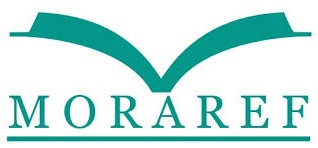Castigliego, J. R., Pollack, A., Cleveland, C. J., & Walsh, M. J. (2021). Evaluating emissions reductions from zero waste strategies under dynamic conditions: A case study from Boston. Waste Management, 126, 170–179. https://doi.org/10.1016/j.wasman.2021.02.026
Chand Malav, L., Yadav, K. K., Gupta, N., Kumar, S., Sharma, G. K., Krishnan, S., Rezania, S., Kamyab, H., Pham, Q. B., Yadav, S., Bhattacharyya, S., Yadav, V. K., & Bach, Q. V. (2020). A review on municipal solid waste as a renewable source for waste-to-energy project in India: Current practices, challenges, and future opportunities. Journal of Cleaner Production, 277, 123227. https://doi.org/10.1016/j.jclepro.2020.123227
Couto, N., Silva, V., Cardoso, J., & Rouboa, A. (2017). 2nd law analysis of Portuguese municipal solid waste gasification using CO2/air mixtures. Journal of CO2 Utilization, 20(January), 347–356. https://doi.org/10.1016/j.jcou.2017.06.001
de Medeiros Engelmann, P., dos Santos, V. H. J. M., da Rocha, P. R., dos Santos, G. H. A., Lourega, R. V., de Lima, J. E. A., & Pires, M. J. R. (2022). Analysis of solid waste management scenarios using the WARM model: Case study. Journal of Cleaner Production, 345(January). https://doi.org/10.1016/j.jclepro.2022.130687
Deus, R. M., Battistelle, R. A. G., & Silva, G. H. R. (2017). Current and future environmental impact of household solid waste management scenarios for a region of Brazil: carbon dioxide and energy analysis. Journal of Cleaner Production, 155, 218–228. https://doi.org/10.1016/j.jclepro.2016.05.158
Fadlil, F. Difinubun, Y. Alim, A. L. G. Y. (2025). Potensi emisi gas metana (ch 4 ) dari kegiatan landfilling di tpa makbon sorong dengan pemodelan landgem.
Fadlil, F., Rahman, A. A., Goa, Y. La, & Diffinubun, Y. (2025). Study Awal Pengelolaan Food Waste terhadap Global Warming ( Pemanasan Global ) di Kota Sorong. 5(1).
Fernández-González, J. M., Grindlay, A. L., Serrano-Bernardo, F., Rodríguez-Rojas, M. I., & Zamorano, M. (2017). Economic and environmental review of Waste-to-Energy systems for municipal solid waste management in medium and small municipalities. Waste Management, 67, 360–374. https://doi.org/10.1016/j.wasman.2017.05.003
Garcia, A. R., Filipe, S. B., Fernandes, C., Estevão, C., & Ramos, G. (2010). Municipal Waste Management Report : Status-quo and Issues in Southeast and East Asian Countries.
Hassan, M. H. H. A., & Kasmuri, N. (2019). Assessment of CO2 Emission and Energy Reduction on Solid Waste in Jeram Landfill Using Warm Analysis. International Journal of Integrated Engineering. https://api.semanticscholar.org/CorpusID:164340946
Hoornweg, D., & Bhada-Tata, P. (2012). A Global Review of Solid Waste Management. World Bank Urban Development Series Knowledge Papers, January 2012, 1–116. https://openknowledge.worldbank.org/handle/10986/17388
Hosseini, S. M., Mehrdadi, N., & Hosseini, S. A. (2023). Evaluation of integrated waste management by using of Waste Reduction Model (WARM)- (Case study of Amol-Noor region, Iran). Journal of Civil Engineering Researchers, 5(3), 15–23. https://doi.org/10.61186/jcer.5.3.15
Hottle, T. A., Bilec, M. M., Brown, N. R., & Landis, A. E. (2015). Toward zero waste: Composting and recycling for sustainable venue based events. Waste Management, 38(1), 86–94. https://doi.org/10.1016/j.wasman.2015.01.019
Jibril, J. D. azimi, Sipan, I. Bin, Sapri, M., Shika, S. A., Isa, M., & Abdullah, S. (2012). 3R s Critical Success Factor in Solid Waste Management System for Higher Educational Institutions. Procedia - Social and Behavioral Sciences, 65(ICIBSoS), 626–631. https://doi.org/10.1016/j.sbspro.2012.11.175
Joseph, L. P., & Prasad, R. (2020). Assessing the sustainable municipal solid waste (MSW) to electricity generation potentials in selected Pacific Small Island Developing States (PSIDS). Journal of Cleaner Production, 248, 119222. https://doi.org/10.1016/j.jclepro.2019.119222
Kayakutlu, G., Daim, T. U., Kunt, M., Altay, A., & Suharto, Y. (2017). Scenarios for regional waste management. Renewable & Sustainable Energy Reviews, 74, 1323–1335. https://api.semanticscholar.org/CorpusID:113830675
Kebijakan, P. T. (2017). Kebijakan-Dan-Strategi-Daerah-Pengelolaan-Sampah-Rumah-Tangga-Dan-Sampah-Sejenis-Sampah-Rumah-Tangga27.Pdf.
Klavenieks, K., Dzene, K. P., & Blumberga, D. (2017). Optimal strategies for municipal solid waste treatment - Environmental and socio-economic criteria assessment. Energy Procedia, 128, 512–519. https://doi.org/10.1016/j.egypro.2017.09.071
Knickmeyer, D. (2020). Social factors influencing household waste separation: A literature review on good practices to improve the recycling performance of urban areas. Journal of Cleaner Production, 245, 118605. https://doi.org/10.1016/j.jclepro.2019.118605
Kumar, A., & Samadder, S. R. (2017). A review on technological options of waste to energy for effective management of municipal solid waste. Waste Management, 69, 407–422. https://doi.org/10.1016/j.wasman.2017.08.046
Maghmoumi, A., Marashi, F., & Houshfar, E. (2020). Environmental and economic assessment of sustainable municipal solid waste management strategies in Iran. Sustainable Cities and Society, 59(August 2019), 102161. https://doi.org/10.1016/j.scs.2020.102161
Mahmoudkhani, R., Valizadeh, B., & Khastoo, H. (2014). Greenhouse Gases Life Cycle Assessment (GHGLCA) as a decision support tool for Municipal Solid waste management in Iran. Journal of Environmental Health Science and Engineering, 12(1), 1–7. https://doi.org/10.1186/2052-336X-12-71
Maity, D. S. K. (2018). Importance of Municipal Solid Waste Management. International Journal of Advanced Engineering Research and Science, 5(5), 361–363. https://doi.org/10.22161/ijaers.5.5.49
Malik, S., Heremba, S., Goa, Y. La, Fadlil, F., Studi, P., Kimia, T., Pendidikan, U., Sorong, M., Studi, P., Kimia, T., Pendidikan, U., Sorong, M., Studi, P., Kimia, T., Pendidikan, U., Sorong, M., Studi, P., Kimia, T., Pendidikan, U., & Sorong, M. (2023). Pemanfaatan Limbah Tulang Ikan Layaran ( Istiophorus platypterus ) Sebagai Adsorben Pada Pemurnian Minyak Goreng Bekas Indonesia adalah Negara kepulauan yang memiliki potensi. 3(2), 6–10.
Maulidia, A. G., & Wikaningrum, T. (2025). Greenhouse gas emission calculation and energy impact of TPS3R flamboyan using waste reduction model (WARM) V.15: Implications for disaster risk reduction. ASEAN Natural Disaster Mitigation and Education Journal. https://api.semanticscholar.org/CorpusID:276073734
Paladino, O., & Massabò, M. (2017). Health risk assessment as an approach to manage an old landfill and to propose integrated solid waste treatment: A case study in Italy. Waste Management, 68, 344–354. https://doi.org/10.1016/j.wasman.2017.07.021
Pin, B. V. R., Barros, R. M., Silva Lora, E. E., & dos Santos, I. F. S. (2018). Waste management studies in a Brazilian microregion: GHG emissions balance and LFG energy project economic feasibility analysis. Energy Strategy Reviews, 19, 31–43. https://doi.org/10.1016/j.esr.2017.11.002
Section 2: Waste Management Technologies. (2014). Solid Wastes Management, 16–100. https://doi.org/10.1002/9781118863923.ch2
Ugwu, C. O., Ozoegwu, C. G., Ozor, P. A., Agwu, N., & Mbohwa, C. (2021). Waste reduction and utilization strategies to improve municipal solid waste management on Nigerian campuses. Fuel Communications, 9, 100025. https://doi.org/10.1016/j.jfueco.2021.100025
Vazquez, Y. V., Barragán, F., Castillo, L. A., & Barbosa, S. E. (2020). Analysis of the relationship between the amount and type of MSW and population socioeconomic level: Bahía Blanca case study, Argentina. Heliyon, 6(6). https://doi.org/10.1016/j.heliyon.2020.e04343
Zaman, A. U. (2014). Identification of key assessment indicators of the zero waste management systems. Ecological Indicators, 36, 682–693. https://doi.org/10.1016/j.ecolind.2013.09.024
Zoë Lenkiewicz. (2024). Beyond an age of waste. https://wedocs.unep.org/20.500.11822/44939
 (Universitas Pendidikan Muhammadiyah Sorong)
(Universitas Pendidikan Muhammadiyah Sorong) 








.png)









